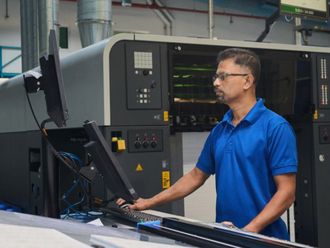The car is cleaned for cash. Bread and milk from the shop around the corner are also for cash, and the laundry guy, of course, doesn't bring a credit card machine to my doorstep.
So it isn't really a big deal that I have to pay in cash for petrol as stations won't accept credit cards any more. I have been doing so anyway since they decided to pass bank charges on credit cards to their poor customers last month. Even though the 1.65 per cent seemed pretty insignificant, it was the principle: I wouldn't be paying their bank fees even in return for convenience.
So far my only concern has been to remember to carry enough cash when the car won't make it to the next ATM on the road.
But reactions of many people to the petrol stations' recent announcement seem different and indicate more worries, which may be consistent with how they have been managing transportation costs.
First, there are the plastic money lovers with whom I affiliate. For us, cards are the greatest method of payment. They are convenient, clean and less risky. They also provide monthly records of where and on what the money is being spent. But since many people may be going through their statements only to ensure they are error-free, paying for petrol in cash may be an opportunity for them to keep track of and control how much is spent on petrol.
So whether the petrol stations' decision is a setback for plastic money or not, it won't be too bad if the result is something like saying, "I have fuelled my car twice in one week. Why have I been running all over town for no reason?" You may find your understanding how much you've been using your car and spending on fuel very handy in view of soaring oil prices, which threaten an increase in fuel prices at any time. This information should also be an eye-opener if you're environmentally conscious.
Then there is the camp whose salaries run out by the 15th of every month. They may have been even willing to pay a "premium" for using credit cards instead of having to come up with cash. They may be right if they are comparing the unfair 1.65 per cent to withdrawing cash on their credit cards, which is usually heavy loaded with bank charges.
Need to plan
Now they have to adjust to the fact that their credit cards won't be accepted at all. They need to plan - and many hate planning - to have enough cash for gas through the month. Where to start? Rework your budget carefully and highlight gas as a cash item for which you need to set sufficient funds aside. Remember that if you're using your car for business, now is the right time to negotiate with your employer an advance cash for petrol.
On the bright side, once you start paying for gas in cash, you should expect shorter credit card statements, and subsequently your monthly cash should, theoretically, last longer.
Finally, if this is too much work to do, you may consider the branded cards which petrol stations offer as an alternative to credit cards. Those cards may be good for keeping the money out of your reach so you don't spend it on something else. Go for them, if they will allow you better control and ensure you won't be stranded on the road with cards cards everywhere and petrol station in sight.
On the bright side, once you start paying for gas in cash, you should expect shorter credit card statements.












